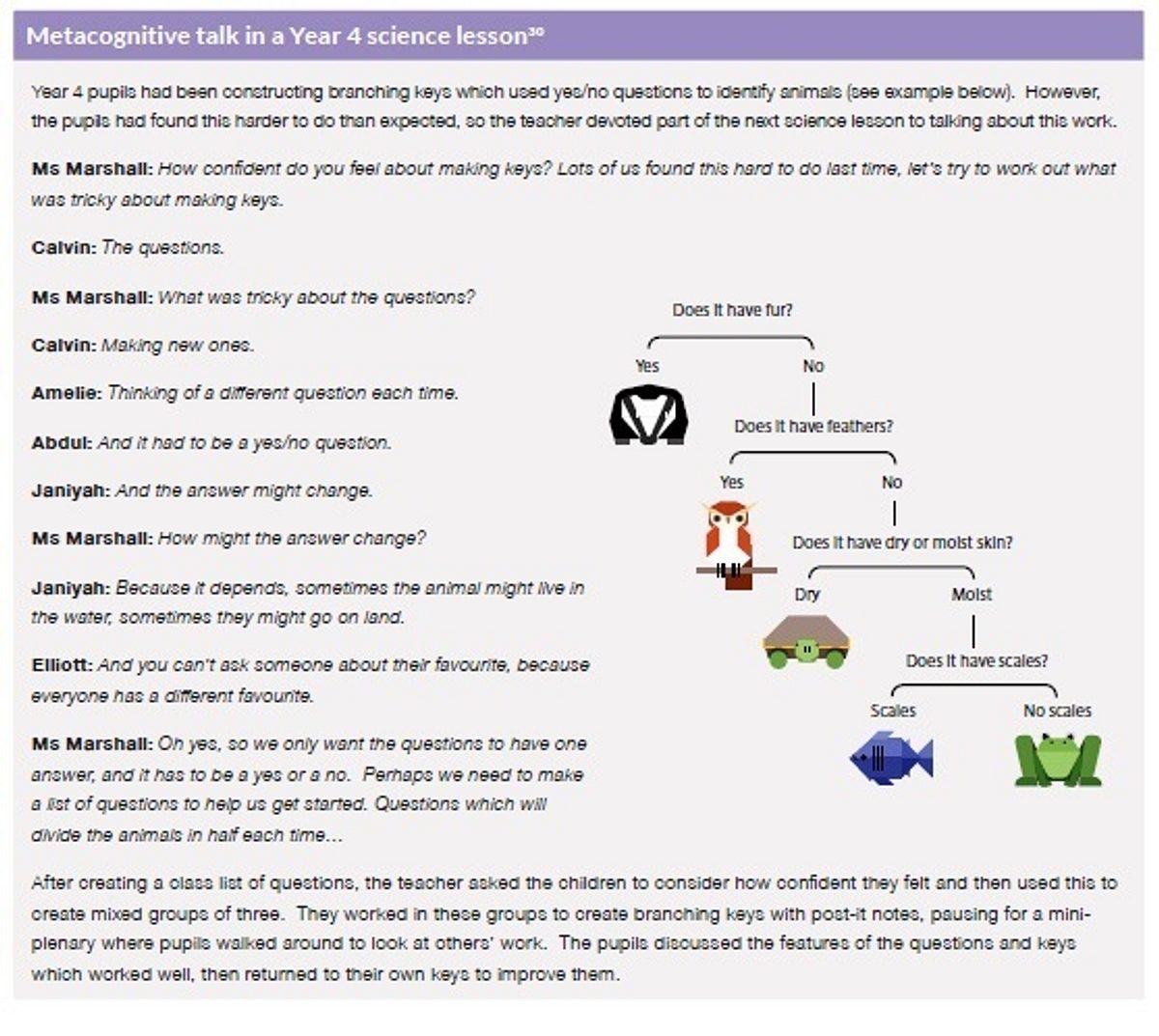
Blog -
Using evidence in education: A reflection
by Kate Mouncey – Director
Sandringham Research School is no longer active. We are continuing to support schools in the region through the wider Research School Network.
Search for other Research Schools in your area
Share on:

by Sandringham Research School
on the
by Karen Roskilly, Research Lead
Recommendation 5 of the Metacognition and Self-Regulated Learning Guidance Report focuses on developing metacognitive talk in our classrooms. It suggests that:
- As well as explicit instruction and modelling, classroom dialogue can be used to develop metacognitive skills.
- Pupil-to-pupil and pupil-teacher talk can help to build knowledge and understanding of cognitive and metacognitive strategies.
- However, dialogue needs to be purposeful, with teachers guiding and supporting the conversation to ensure it is challenging and builds on prior subject knowledge.
The clear theme that runs through this section is the importance of purposeful dialogue. Reflecting on my own teaching when I first read the report, I was aware that a significant amount of time in my classroom was devoted to discussion, but that this could be planned more effectively and be more purposeful.
An example in the report illustrates this with a Year 4 science lesson where talk is carefully planned to get students thinking, actively listening and carefully responding.

Evidence from small scale randomised controlled trials have shown the potential ofhigh-quality classroom talk to raise standards. Developing classroom talk can also be an effective way of improving students’ metacognitive skills. A number of classroom interventions are referred to in the Guidance Report to support this and the work of Robin Alexander is specifically referenced. A key element Alexander discusses is encouraging quality teacher talk with teachers using questioning to elicit further thought.
One clear strategy to organise and structure classroom talk and dialogue is the use of talk partners. This simply involves pairing students up to discuss the answers to questions in class. This is a relatively easy strategy to implement but is something that does require planning if it is to be effective, particularly in terms of who is partnered with who, the task it is best suited to and what is expected of students in the task. It also has many advantages, including actively involving all students in participating in the task.
More details about talk partners can be found here.

Blog -
by Kate Mouncey – Director

Blog -
working with groups of schools

Blog -
5 musings on early reading and writing
This website collects a number of cookies from its users for improving your overall experience of the site.Read more